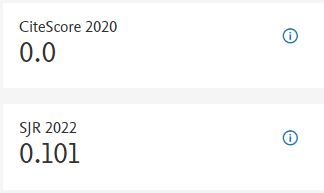ANTECEDENTS AND THEIR RELATIONSHIP TO GENDER DISPARITY AT MANAGERIAL LEVELS: AN EMPIRICAL STUDY CONCERNING THE SELECT SERVICE SECTOR IN DELHI NCR
DOI:
https://doi.org/10.7492/vs95pc54Abstract
This empirical study focuses on antecedents and their relationship with gender disparity at the management level by surveying select service employees in Delhi, the National Capital Region. This research measured the influence of six reflective constructs—biased performance appraisal, inability to access power networks, work-life conflict, unequal HR practices and policies, gender stereotyping, and personal/individual perception—on the dependent reflective construct of gender disparity. The data were collected using a structured questionnaire with 27 statements to measure the above 7 reflective constructs. The questionnaire was administered to the targeted population comprising management-level employees of the IT, media, and banking sectors. Using the information from the 389 responses that were analyzed using factor and structural equation modeling, the author tested his hypothetical framework. The data were normally distributed, as determined by the Shapiro‒Wilk test (p>0.05), and the instrument retained its reliability and internal consistency, as evidenced by the calculated Cronbach's alpha statistic values, which ranged between 0.73 and 0.81. The effect of the six constructs was tested on the dependent construct of gender disparity. All the three reflective constructs—Inaccessibility to power networks, Unequal HR practices and policies, and gender stereotyping—had positive impacts on gender disparity, which were statistically significant. The authors recommend service industry management to address power networks, HR practices, and gender stereotyping issues.

















